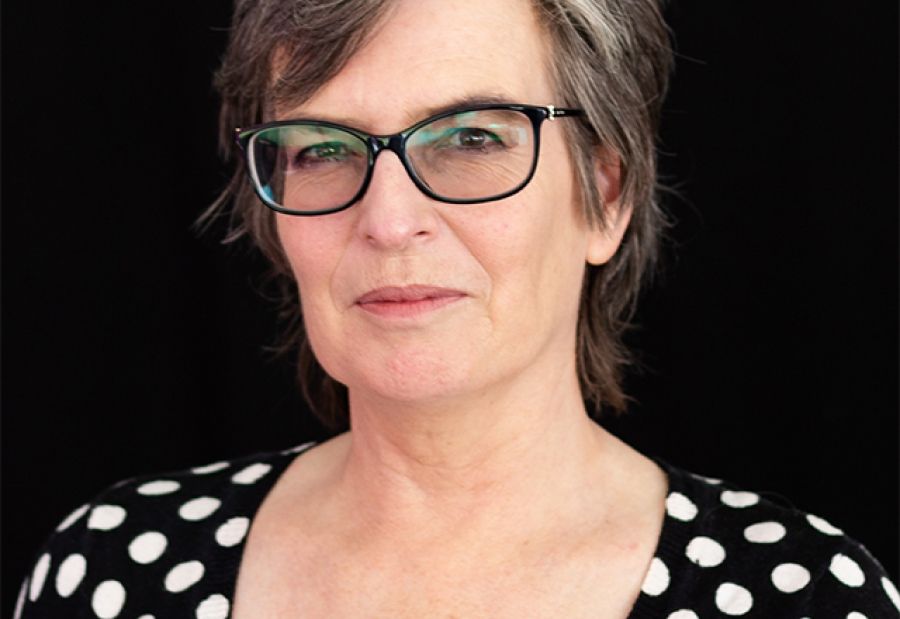
- Free Article: No
- Contents Category: Critic of the Month
- Custom Article Title: Alison Croggon is Critic of the Month
- Review Article: No
- Custom Highlight Text:
I mostly review theatre, and yes, I am selective, mostly from a sense of self-preservation. I have cut back my theatre-going to once or twice a week, and Melbourne’s performance arts culture produces much more work than that. I feel a bit guilty, since I am less in touch with emerging work than I once was, but a girl can only do so much.
Susan Sontag is another. Viktor Shklovsky. Jacqueline Rose. Where do you stop? When I began to work seriously as a theatre critic, I was enormously influenced by Robert Brustein, theatre critic for New Republic, who provided a model of someone who writes as theatrical critic and practitioner.
What makes a fine critic?
Boundless curiosity, generous attention, love. I think all else – literacy in the art form you’re critiquing, respect for the reader, respect for the work, rigour, the desire to perceive and champion the new, the ability to call bullshit – stems from those things.
Do you accept most books on offer,or are you selective?
I mostly review theatre, and yes, I am selective, mostly from a sense of self-preservation. I have cut back my theatre-going to once or twice a week, and Melbourne’s performance arts culture produces much more work than that. I feel a bit guilty, since I am less in touch with emerging work than I once was, but a girl can only do so much.
Do reviewers receive enough feedback from editors and/or readers?
Probably not; I meet many young critics who long for more feedback. Good editors have taught me more about writing than anyone else, by questioning, insisting on detail, picking up on sloppy phrasing. They challenge me to do better.
What do you think of negative reviews?
It depends. A good negative review will always illuminate an art form, even if it is demolishing a particular work. A bad negative review just destroys everything in sight, mainly for the gratification of the writer and the schadenfreude of the reader. I find that kind of negative review pretty much a waste of my time.
How do you feel about reviewing people you know?
Perhaps because I began as a theatre reviewer, I have always thought of criticism as dialogic. I have never considered myself to be making magisterial judgements from on high, but rather as part of a larger conversation which includes the art work itself. For me, those conversations occur off the page as well as on it, but that’s also about where I work, and the art form I criticise.
Melbourne theatre is astonishingly collegial: I don’t think it’s like anywhere else. Critics here almost without exception see themselves as part of the community, rather than as speaking from outside it. And Australian theatre is very small; it’s impossible to be around for any length of time and not know most people personally.
I have always negotiated that by being as strictly honest as I can. If I know and respect someone I am likely to expect more from them, and so I don’t exactly think it’s an advantage to be friends with me. I think being truthful and attentive, for good or ill, is the respect you pay work. To be less than either is insulting. (Not all artists agree with this, of course, and reviewing someone’s work is an excellent test of friendship).
As Michael Billington said once, the really difficult thing is reviewing people or companies with whom you’ve had a public disagreement: it’s too easy for any negative response to be framed as personal animosity.
What’s a critic’s primary responsibility?
I think the critic’s first responsibility is to the work: the criticism I find most inspiring always flows from a love of the art being discussed. What follows from that is a responsibility to the reader – to be candid, to write to the best of your ability, to be informed, to be attentive and responsive, to be fair. Which are pretty much the responsibilities I think we owe artists, too.
Alison Croggon – poet, novelist, critic, librettist – won the 2009 Pascall Prize for Critical Writing. She currently reviews for ABC Arts.


Comments powered by CComment